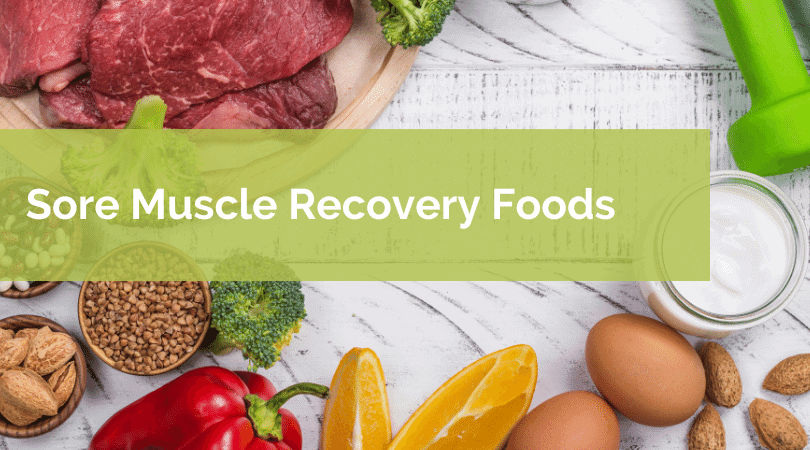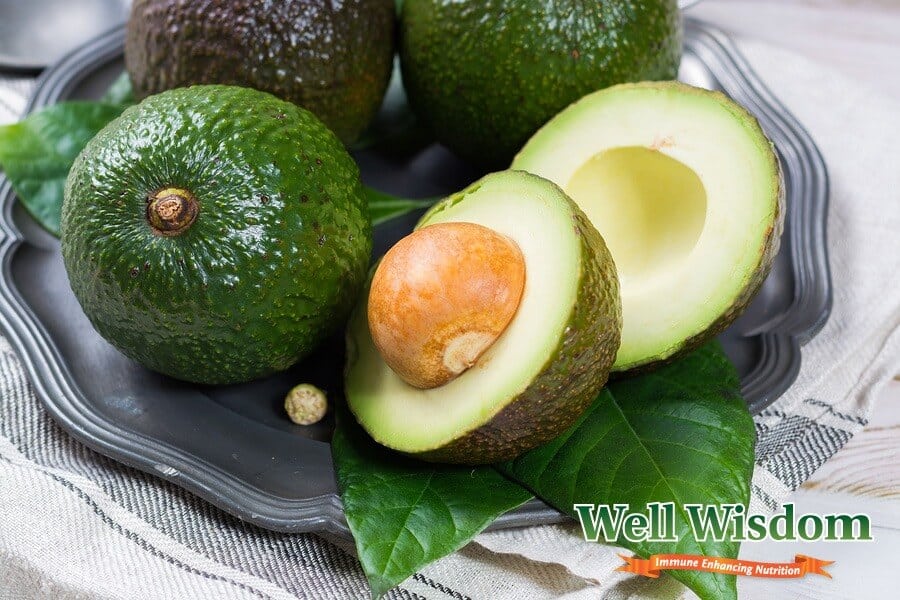
When it comes to exercise, a lot of people take the saying “no pain, no gain” a bit too literally. A bit of soreness within 48 hours after an intense workout is to be expected. But sometimes there comes a point when the pain can be too much. You can hardly move because of the pain and stiffness caused by the low-grade inflammation that follows an intense workout. This is the result of muscle fibers being broken down during your rigorous training session.
This doesn’t have to be a regular, or prolonged, experience for you and in fact, you may only need a few dietary changes to see a real difference in your muscle soreness after a workout.
Thankfully, there are a few muscle recovery foods that will come to your rescue! They can help to reduce inflammation, aid in post-workout recovery, and prevent sore muscles.
Best Foods for Sore Muscles
Below are several foods for sore muscles that can help improve your recovery between workouts and keep you feeling your best.
Whey Protein – Whey protein is the ultimate sore muscle recovery food! It provides your body with the amino acids needed to repair your muscles after intense exercise, and thereby drastically reduces soreness.
During a workout, your muscle fibers breakdown and need time to recover, which is where soreness can come into play. Having a protein shake after your workout can do wonders to keep the soreness away and minimize pain between workouts, getting you back to the gym as soon and comfortably as possible.
Omega-3 Fatty Acid – Salmon, tuna, sardines, and fish oil all contain the amazing nutrient that is Omega-3. Omega-3 is a type of unsaturated fatty acid that plays a number of important roles in your health, including in your muscle recovery process.
This nutrient has potent anti-inflammatory properties that will reduce the swelling caused by muscle damage. Not only that, but the fats can prevent muscle breakdown and encourage better circulation, enabling your body to send the repairing nutrients to your muscles faster.
Tart Cherries – Tart cherries have been scientifically proven to prevent Delayed Onset Muscle Soreness (DOMS), one of the most common types of post-workout soreness. They do so by encouraging the efficient elimination of the lactic acid and other waste products produced in your muscles during your workout, which can contribute to muscle soreness.
They can also help you recuperate your strength more quickly and will give you a better night of sleep so your body can make the vital repairs needed before your next workout (most of which happen overnight).

Avocados- Avocados provide an amazing combination of electrolytes (potassium), healthy fat, and help extend post meal satiation. The potassium in avocado can help prevent muscle cramping and plays a role in your muscular water balance. It also helps to encourage more efficient muscle contractions, potentially reducing soreness.
The fat in avocados also helps your body absorb essential vitamins like A, E, and the water-soluble B vitamins. All of these vitamins lead to better overall body function, including improved circulation and nutrition to your muscles. The fat in avocado also helps slow down gastric emptying which will help keep you full longer and reduce the urge to snack on junk which is often a struggle after a long and intense exercise session.
High-Glycemic Fruits and Starches – This may go contrary to a lot of the weight loss advice you’ve read, but the truth is that sugary fruits and high-glycemic starches like rice, noodles, and potatoes are wonderful for reducing soreness.
They provide your body with a rush of glycogen, which is needed to replenish the energy burned up by your muscles during a workout. They can also aid in tissue recovery and repair, increase insulin (which reduces muscular inflammation), and can help to prevent the chemical byproducts of your workout which can lead to muscle fatigue/soreness.
Berries – Cherries aren’t the only berries that work wonders for your muscles; raspberries, blueberries, blackberries, and any other rich-colored berries can also do the trick. These berries are rich in antioxidants, all of which have anti-inflammatory properties and will reduce oxidative damage in your body. They will help to combat the low-grade swelling caused by the breakdown of muscle tissue and facilitate muscle repair after a tough workout.

Bananas – Bananas are one of the best food sources of potassium, with one medium banana providing over 400 mg in its own natural packaging. One of the two major electrolytes (the other being sodium) that control your muscular water balance.
During an intense workout, your body often burns through its potassium stores. Potassium plays a role in muscle contraction. Depleting the potassium reserves in your body can interfere with proper contraction (ergo, a less effective workout). By eating a banana after your workout, you replenish eliminated potassium and it can keep your water balance steady, leading to more efficient muscle repairs.
Water – This may seem obvious, but water is one of the most important components for muscle recovery! Many of us don’t drink nearly enough water on a regular day, let alone a day that includes lots of activity. Your body is composed of close to 70% water, and it’s crucial to maintain that balance for optimal health outcomes.
What happens when that water is depleted (in the form of sweat during an intense workout)? It stops working properly! Even minor dehydration can lead to reduced body function and impaired muscular repair. Replenishing lost fluids after a workout can go a long way toward preventing muscle soreness, and you can do this in a number of ways. How do you know if you’re getting dehydrated? Of course feeling thirsty is an indicator but another way to tell is the color of your urine. Try to keep this a clear, pale yellow color. Darker urine indicates dehydration.
Nuts – Nuts are a curious food to add to this list, as we don’t usually hear about eating nuts in relation to muscle recovery. They are rich in dietary fiber and fats, but it’s the fats that actually benefit you in terms of exercise.
The unsaturated fats in nuts protect your body and reduce oxidative stress during your intense workouts. Reducing oxidative stress helps decrease the amount of damage done to your body during training. This means muscles recover faster and there is less risk of being sore the next couple of days. Nuts can help muscles heal and get you back to your training faster. Plus, nuts are a convenient snack to keep in your gym bag or car for easy access.

Eggs – Eggs are the best natural source of protein on the planet and are also one of the best foods to help with sore muscles! They contain all the essential amino acids required for protein synthesis, which means they’ll help your body repair the muscle damage caused by your workout. They also boost your metabolism and help increase energy production. The antioxidants in eggs will reduce oxidative stress and inflammation, enabling your body to make faster muscle repairs. Having a few eggs after your workout will do wonders to help reduce muscle soreness and get you back in action fast.
Turmeric – Turmeric is best known as a yellow-orange colored spice often used in many dishes native to India and Southeast Asia. It’s a potent anti-inflammatory food, meaning it will combat the low-grade swelling caused by the breakdown of muscle tissue. It’s also a natural pain-killer that can reduce the discomfort of swollen and sore muscles. Best of all, it will speed up recovery times. Turmeric is easy to add to a number of dishes, ranging from pastas and stir fries to tea and even post-workout smoothies.
Remember these options when looking for foods good for sore muscles. Add these muscle recovery foods to your diet after an intense workout, and incorporate them more regularly into your routine, and your risk of muscle soreness after a taxing workout will drastically decrease!
References
- Buckley JD, Thomson RL, Coates AM, Howe PRC, DeNichilo MO, Rowney MK. Supplementation with a whey protein hydrolysate enhances recovery of muscle force-generating capacity following eccentric exercise. J Sci Med Sport. 2010;13(1):178-181.
- Mori TA, Beilin LJ. Omega-3 fatty acids and inflammation. Curr Atheroscler Rep. 2004;6(6):461-467.
- Kuehl KS, Perrier ET, Elliot DL, Chesnutt JC. Efficacy of tart cherry juice in reducing muscle pain during running: a randomized controlled trial. J Int Soc Sports Nutr. 2010;7:17.
- Lindinger MI, Sjøgaard G. Potassium regulation during exercise and recovery. Sports Med. 1991;11(6):382-401.
- Close GL, Ashton T, Cable T, et al. Effects of dietary carbohydrate on delayed onset muscle soreness and reactive oxygen species after contraction induced muscle damage. Br J Sports Med. 2005;39(12):948-953.
- Goldfarb AH, Garten RS, Cho C, Chee PDM, Chambers LA. Effects of a fruit/berry/vegetable supplement on muscle function and oxidative stress. Med Sci Sports Exerc. 2011;43(3):501-508.
- Hallissey HM. The use of bananas in preventing exercise associated muscle cramps. Accessed September 3, 2020. https://library.ndsu.edu/ir/handle/10365/27535
- Ali A, Williams C. Isokinetic and isometric muscle function of the knee extensors and flexors during simulated soccer activity: effect of exercise and dehydration. J Sports Sci. 2013;31(8):907-916.
- Peairs AD, Rankin JW, Lee YW. Effects of acute ingestion of different fats on oxidative stress and inflammation in overweight and obese adults. Nutr J. 2011;10:122.
- Hida A, Hasegawa Y, Mekata Y, et al. Effects of egg white protein supplementation on muscle strength and serum free amino acid concentrations. Nutrients. 2012;4(10):1504-1517.
- Faria FR, Gomes AC, Antunes A, et al. Effects of turmeric extract supplementation on inflammation and muscle damage after a half-marathon race: a randomized, double-blind, placebo-controlled trial. Eur J Appl Physiol. 2020;120(7):1531-1540.
- Should You Take Whey Protein Powder After Surgery? - March 2, 2023
- How Much Protein is Too Much? - January 30, 2023
- Is Whey Protein Keto Friendly? - January 30, 2023





